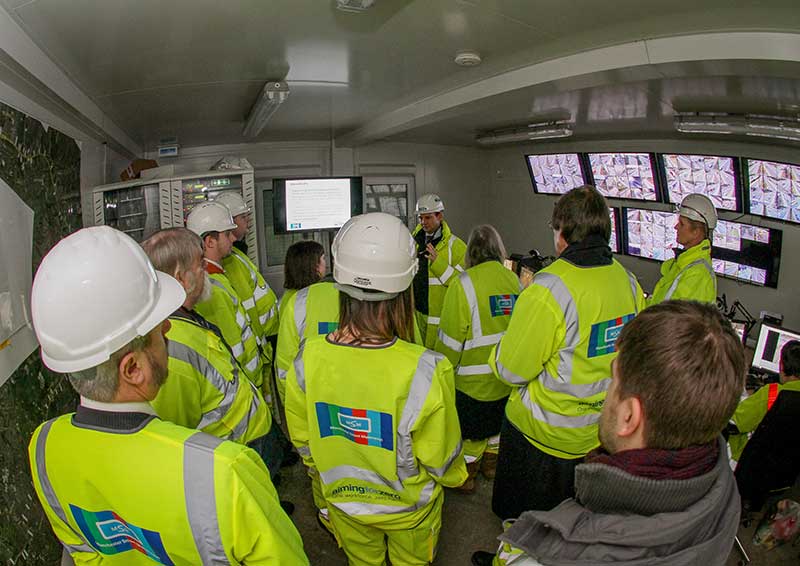What to expect of sustainability professionals
Contents |
[edit] Introduction
Do infrastructure professionals expect too much, or the wrong thing, from their sustainability colleagues?
Civil engineering and infrastructure are central to sustainability and vice versa. Without infrastructure to meet society’s development, there won’t be any sustainability, whether we’re talking about social, economic or environmental sustainability.
But the infrastructure sector often expects too much, or the wrong thing, from their sustainability colleagues.
Infrastructure professionals all seem to expect that their sustainability colleagues will provide ‘the’ answer to the sustainability issues for each and every project.
In addition, sustainability professionals often act in a way that supports this expectation. This misunderstanding of sustainability is not delivering the innovative solutions we need.
[edit] Great and usually unrealistic expectations
It starts at conferences with sustainability professionals giving presentations that show how they can provide all the answers for everything.
“Here’s our wonderful project in which we started with problems X, Y, and Z, and the sustainability team/professional proposed solutions M, N, and O which all worked perfectly.” Hidden message: sustainability is a great way to solve lots of infrastructure or engineering challenges. This sounds great, doesn’t it?
Unfortunately, no. The unintended consequence of this message is the expectation that ‘the’ (single, best fit) sustainability solution already exists and that it can easily be found just by asking the project’s sustainability professional or sustainability team.
Take a recent example of a major infrastructure project costing a few billion pounds at which ‘the’ sustainability ‘solution’ for the whole project was expected to be explained in a single afternoon workshop to a senior team. How can the sustainability issues possibly be sorted out for such a project in a single workshop and to the senior team only?
This is a significant misunderstanding of sustainability because sustainability requires an almost bespoke response by an individual or a team. The approach to sustainability may be the same across different projects but the solutions are not. If we are to pursue infrastructure excellence then sustainability cannot be delivered in an afternoon workshop.
It requires an ongoing strategic engagement with many different stakeholders and constant dialogue with the teams delivering the project. Presentations of ‘the’ answer by sustainability professionals have the unfortunate effect of compounding the misunderstanding of the collective response at all levels that is needed.
In addition, this single answer misunderstanding of sustainability prevents it from being a powerful force for innovation as well as social, environmental and economic goods. To innovate, sustainability must be allowed to function as a critical friend or mirror on projects.
[edit] What should we expect from sustainability professionals?
On projects, sustainability professionals can provide the right questions and share best practice. Each professional is not an expert in water engineering, geotechnics, structures, planning, contracting, to name just a few disciplines.
Other professionals know their domain far better than sustainability professionals. But by providing the spaces and moments for the experts already working on the project they can facilitate the identification and working through of engineering questions. This different lens enables all the professionals on the project to develop solutions to the sustainability questions.
If we can live and work with the numerous sustainability questions for each project and give up on expecting others to provide the answer we will be able to start providing the sustainability solutions society requires.
This article was originally published here on 14th Nov 2017 by ICE. It was written by Davide Stronati, Chair ICE Sustainability Leadership Team and Global Sustainability Leader, MottMacDonald.
--The Institution of Civil Engineers
[edit] Related articles on Designing Buildings Wiki
Featured articles and news
Scottish parents prioritise construction and apprenticeships
CIOB data released for Scottish Apprenticeship Week shows construction as top potential career path.
From a Green to a White Paper and the proposal of a General Safety Requirement for construction products.
Creativity, conservation and craft at Barley Studio. Book review.
The challenge as PFI agreements come to an end
How construction deals with inherited assets built under long-term contracts.
Skills plan for engineering and building services
Comprehensive industry report highlights persistent skills challenges across the sector.
Choosing the right design team for a D&B Contract
An architect explains the nature and needs of working within this common procurement route.
Statement from the Interim Chief Construction Advisor
Thouria Istephan; Architect and inquiry panel member outlines ongoing work, priorities and next steps.
The 2025 draft NPPF in brief with indicative responses
Local verses National and suitable verses sustainable: Consultation open for just over one week.
Increased vigilance on VAT Domestic Reverse Charge
HMRC bearing down with increasing force on construction consultant says.
Call for greater recognition of professional standards
Chartered bodies representing more than 1.5 million individuals have written to the UK Government.
Cutting carbon, cost and risk in estate management
Lessons from Cardiff Met’s “Halve the Half” initiative.
Inspiring the next generation to fulfil an electrified future
Technical Manager at ECA on the importance of engagement between industry and education.
Repairing historic stone and slate roofs
The need for a code of practice and technical advice note.
Environmental compliance; a checklist for 2026
Legislative changes, policy shifts, phased rollouts, and compliance updates to be aware of.





















